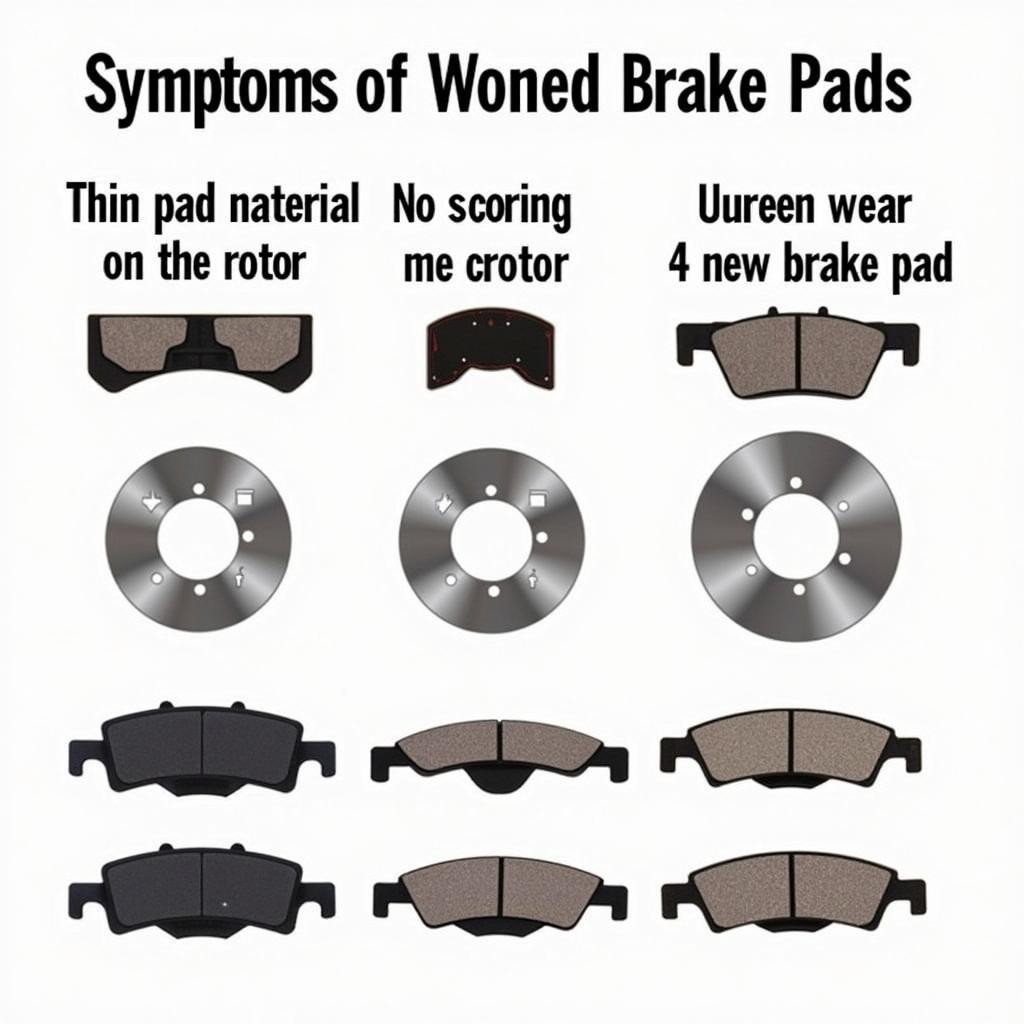Ground loop noise in your car subwoofer can be a real headache, turning your favorite tunes into a buzzing mess. This article will show you how to diagnose and eliminate that annoying hum, so you can get back to enjoying crystal-clear audio. We’ll cover everything from simple checks to more advanced solutions, ensuring you have the knowledge to tackle this common car audio problem.
Understanding Ground Loop Noise
Ground loop noise, often described as a low-frequency hum or buzz, occurs when there’s more than one grounding path for your car audio system. This creates a loop where stray electrical currents can flow, inducing noise into your audio signal. It’s particularly noticeable in subwoofers because they’re sensitive to low-frequency interference.
Common Causes of Ground Loop Noise in Subwoofers
Several factors can contribute to ground loop noise in your sub. These include:
- Improper grounding of the head unit or amplifier: This is the most common culprit. A weak or loose ground connection can create the perfect environment for ground loops to form.
- Multiple ground points: If your amplifier and head unit are grounded at different locations, it can introduce a difference in electrical potential, leading to noise.
- Poor quality RCA cables: Cheap or damaged RCA cables can act as antennas, picking up interference and transmitting it to your subwoofer.
- Power cable routing: Running power cables close to signal cables can induce noise into the audio signal.
How to Fix Car Audio Ground Loop Noise in Sub: Step-by-Step Guide
Here’s a step-by-step guide to help you troubleshoot and fix that annoying hum:
- Check the Head Unit Ground: Ensure the head unit is securely grounded to the chassis. Use a multimeter to check the resistance between the head unit ground and a clean metal surface on the chassis. It should be close to zero ohms.
- Check the Amplifier Ground: Similarly, check the amplifier’s ground connection. Make sure it’s connected to a clean, unpainted metal surface on the chassis, preferably close to the amplifier.
- Establish a Single Ground Point: If possible, ground both the head unit and the amplifier to the same point on the chassis. This helps eliminate potential differences in electrical potential.
- Inspect the RCA Cables: Check the RCA cables for any damage or wear. If they look suspect, replace them with high-quality shielded cables.
- Route Cables Carefully: Keep power cables and signal cables separated as much as possible to prevent interference. If they must cross, do so at a 90-degree angle.
Advanced Troubleshooting Techniques
If the basic steps don’t solve the problem, try these more advanced techniques:
- Ground Loop Isolator: A ground loop isolator can break the ground loop without affecting the audio signal. Install it on the RCA cables between the head unit and the amplifier.
- Power Filter: A power filter can help clean up the power supply to your amplifier, reducing noise from the vehicle’s electrical system.
Why is My Subwoofer Making a Humming Noise?
The humming noise from your subwoofer is most likely caused by a ground loop. This happens when there are multiple grounding paths for your audio system, creating a loop where electrical currents can flow and induce noise.
How Do I Find a Ground Loop in My Car?
You can find a ground loop by systematically checking the ground connections of your head unit and amplifier. Use a multimeter to measure the resistance between these points and the chassis. A high resistance indicates a poor ground connection, a potential source of the ground loop.
Can a Bad Ground Cause Amplifier Noise?
Yes, a bad ground is a common cause of amplifier noise, including humming, buzzing, and whining. A poor ground connection can introduce unwanted electrical noise into the audio signal.
Expert Advice
“A solid ground is the foundation of a good car audio system,” says John Miller, a veteran car audio technician with over 20 years of experience. “Don’t underestimate the importance of proper grounding when troubleshooting noise issues.”
“Ground loop isolators are a handy tool,” adds Sarah Johnson, a certified automotive electrician. “They can often provide a quick and effective solution to ground loop noise without requiring extensive rewiring.”
Conclusion
Fixing car audio ground loop noise in your sub can seem daunting, but by following these steps, you can often resolve the issue yourself. Remember to check your ground connections, use quality cables, and route them carefully. If you’re still experiencing issues, don’t hesitate to reach out for professional help. For expert assistance, contact AutoTipPro at +1 (641) 206-8880 or visit our office at 500 N St Mary’s St, San Antonio, TX 78205, United States.
FAQ
- What is a ground loop isolator? A ground loop isolator is a device that breaks the electrical connection between two grounds, preventing the flow of unwanted current and eliminating the resulting noise.
- Can a bad RCA cable cause ground loop noise? Yes, a damaged or poorly shielded RCA cable can pick up interference and contribute to ground loop noise.
- Where should I ground my car audio amplifier? Ground your amplifier to a clean, unpainted metal surface on the chassis, preferably close to the amplifier.
- How do I test a ground connection with a multimeter? Set the multimeter to ohms and connect one probe to the ground terminal and the other to a clean metal surface on the chassis. A reading close to zero ohms indicates a good ground.
- What is the best way to route power and signal cables? Route power and signal cables separately to minimize interference. If they must cross, do so at a 90-degree angle.
- Can a ground loop damage my car audio equipment? While a ground loop is unlikely to cause physical damage, it can degrade the sound quality and be annoying.
- What if I’ve tried everything and still have ground loop noise? If you’ve exhausted all troubleshooting options, consult a qualified car audio professional for assistance.






Leave a Reply